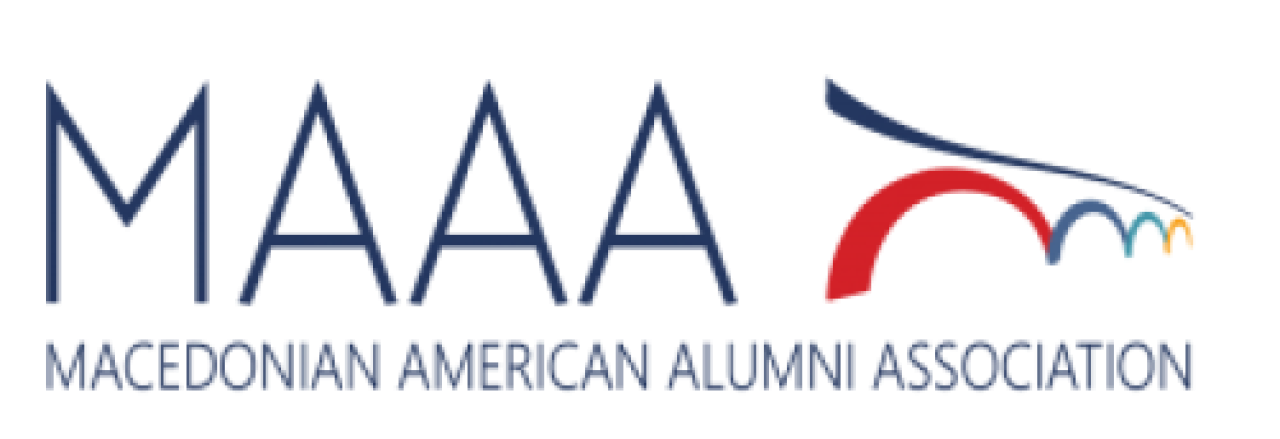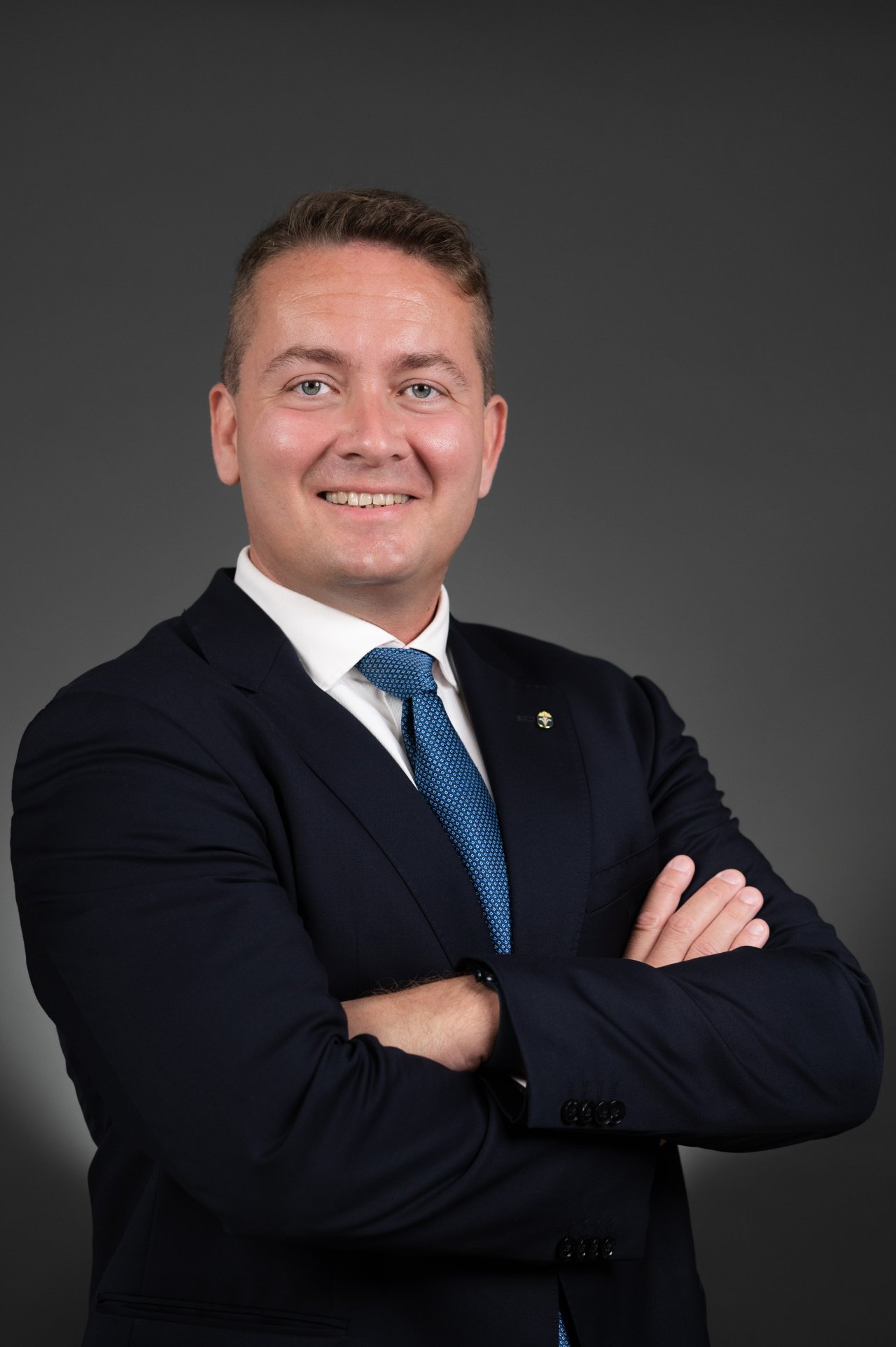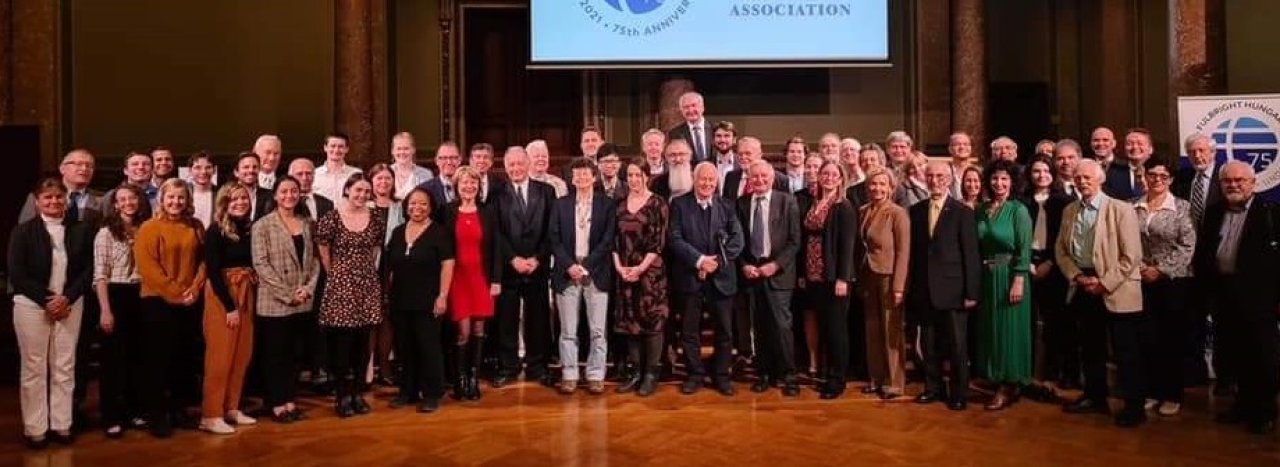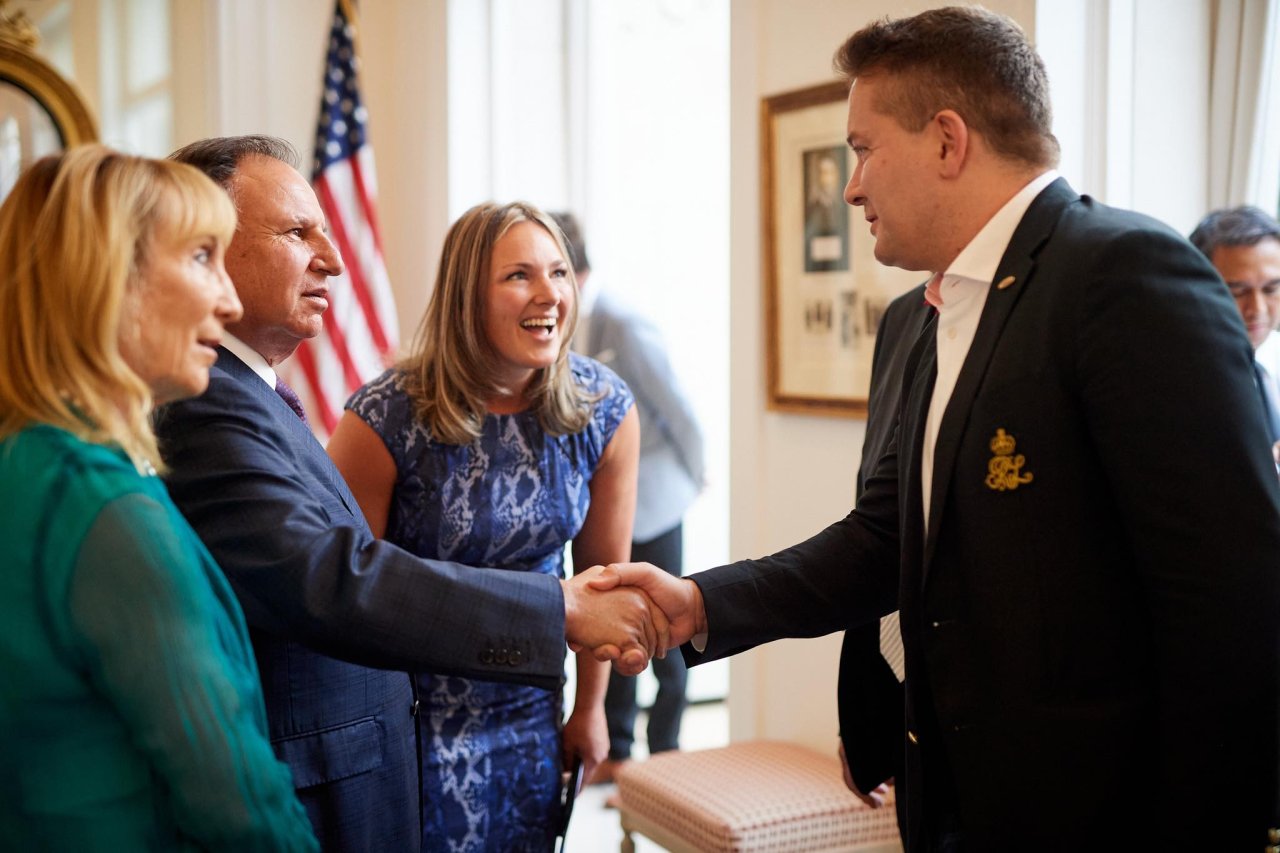Interviewed by Mira Bekar


INTERVIEW with Mr. György Kovács, Hungarian Fulbright Association

Dr. György Kovács is the President of the Hungarian Fulbright Association, and a Board Member of ENAM. He is an attorney, specialized in international transactions, and he serves as the head of the graduate program for digital technology and data economy at Pázmány Péter Catholic University in Budapest. He is a research fellow at CEU, and a former policy officer at the European Commission. He is a member of the Bar Exam Committee of the Ministry of Justice, and a member of the Public Body of the Hungarian Academy of Sciences. Mr. Kovacs is regularly publishing and speaking at international conferences in the area of European Union law. He studied American and International Business Law at the Boston University as a Fulbright Scholar and conducted PhD research at Harvard Law School. He holds a PhD in European Union Law.
Mira (MAAA): Mr. Kovács, could you please inform us more about the Fulbright organization in Hungary and about its recent activities?
György (HFA): There are over 1000 former Fulbrighters in Hungary. The Hungarian Fulbright Association is well-regarded both domestically and internationally. I take particular pride in our ongoing friendship and collaboration with the Hungarian Fulbright Commission, which enhances our global standing. Members of our association actively participate in the orientation programs for US Fulbrighters in Hungary. The president of our association has an official duty to attend festive occasions and welcome new Hungarian and American grantees. At the invitation of the Fulbright Commission, our members regularly participate in the evaluation of Fulbright scholarship applications and host US Fulbrighters in Hungarian academic institutions. Many of our members also regularly attend the Fulbright Commission's successful Christmas parties, as well as July 4th, Thanksgiving, and other festive events organized by the US Embassy in Budapest.
Over the years, we have taken part in cruises on the Danube River organized by the Fulbright Commission for outgoing Hungarian Fulbrighters. We have also organized visits to Brussels and Geneva, visiting various international and EU institutions, NATO, academic institutions and think tanks. Among others, we organized visits for our alumni to the National Széchenyi Library, the National Theatre, the research nuclear facility at the Budapest University of Technology, CERN in Geneva, the Constitutional Court, the Central Oncology Hospital, reception hosted by the President of Hungary, visits to the Palace of the President of Hungary. At our Fulbright Club speaker events, we have hosted former US Ambassadors, former Chargé David J. Kostelancik, former members of the government and of the European Commission. In recent years, we have organized several high-profile international conferences on higher education policy and transatlantic cooperation, which have brought our community members together, and featured speakers, such as former foreign ministers, current state secretaries, university rectors, and the chairman of the Foreign Relations Committee of the Hungarian Parliament, as well as the former chairman of the Rector’s Conference.
We are actively engaged in international collaboration through ENAM and GlobalTies, and we are committed to enhancing bilateral connections with US alumni organizations in various other countries as well.

Mira (MAAA): How does your primary professional occupation as a lawyer/legal expert contribute to creating and performing various Fulbright activities? In other words, how do you combine your specialization in European Law with the role of a board member of the European Network of American Alumni Associations and the Hungarian Fulbright Association?
György (HFA): To begin with, I am responsible for ensuring legal compliance, focusing on adherence to data protection/ privacy regulations and navigating the complex legal landscape for civil organizations at both national and European levels. Additionally, I had previously held a position on the Supervisory Board of the Hungarian-American Fulbright Foundation from 2009 to 2020, which includes the Fulbright Commission in Hungary. Leveraging our personal network, together with our board, we organize prominent events across diverse scientific domains, extending our association's reach to a broad membership base.
Mira (MAAA): Could you please mention some of the recent projects or collaborations the Fulbright Association in Hungary has with Universities in the US? For example, any respected US scholars developing scientific projects in Hungary?
György (HFA): Annually, over 20 esteemed US Fulbright scholars embark on diverse projects in Hungary through the Fulbright Scholarship, overseen by the Fulbright Commission. These scholars actively engage in our conferences, social gatherings, and cultivate bilateral connections. This year alone, the Fulbright Commission welcomed scholars from prestigious institutions among others, such as the US Air Force Academy, Georgetown University, MIT, and NYU. Hungarian Fulbright grantees returning home are also encouraged to maintain their personal and academic collaborations and to extend invitations to their American counterparts for research and teaching opportunities at Hungarian academic institutions.

Mira (MAAA): How is the potential of the Hungarian Fulbright alumni used in Hungary, I am referring to the alumni who stayed in the US and hold positions at universities there? This is an important question particularly in times when it becomes more difficult to convince alumni to join an association in order to keep the experiences of Fulbright exchange programs alive.
György (HFA): Since the inception of the Fulbright Program in Hungary and across the Central and Eastern European (CEE) region, numerous emerging politicians from the region have participated as Fulbright scholars. During the late 1980s, prior to the fall of communism in the Eastern Bloc, individuals from non-democratic nations who observed the operations of American political, economic, and administrative systems often felt inspired to bring back positive elements to their home countries. This catalyzed significant historical transformations, such as the end of the Cold War and the collapse of communism. Many returned Fulbright alumni, equipped with language proficiency and experience in free societies, played pivotal roles as intellectual influencers, leaders in science, emerging as political leaders, members of Parliament, diplomats, civil servants, and local government officials. It would be beneficial to compile a comprehensive list of Fulbright scholars who ascended to prominent positions in formerly communist-dominated countries.
Over the past three decades, more than a thousand, of Hungarians have benefited from Fulbright grants. Across all participating countries, the Fulbright Program has spurred remarkable progress in politics, economics, science, and academia. Through disseminating scientific findings, combating ignorance and prejudice, fostering international friendships, and broadening perspectives for future generations, the Fulbright Program has left an indelible mark on history in Hungary, and across the region.
Mira (MAAA): What are the most successful strategies of maintaining a strong and proactive Fulbright Association in Hungary?
György (HFA): Consistent communication with members, welcoming new grantees, providing diverse and relevant programming, nurturing alumni networks, and actively pursuing collaborations with universities and other organizations are essential.
We prioritize welcoming new Fulbright grantees, participating in orientations, and encouraging their involvement in the Fulbright Association. Our programming spans various disciplines, featuring distinguished speakers who appeal to a wide audience in both natural and social sciences.
Drawing from best practices shared within ENAM and GlobalTies networks, we extend these international connections to our individual members.
The ongoing support from the US Embassy and the Fulbright Commission is crucial. Additionally, partnerships with leading Hungarian universities such as Corvinus, ELTE, Metropolitan, and the University of Sport Sciences are significant. Recently, we hosted a highly successful event in collaboration with the Rector’s Conference, highlighting the importance of such partnerships.
Mira (MAAA): How do you manage to keep your members engaged and actively involved in the Hungarian Fulbright Association projects and activities?
György (HFA): Keeping members engaged involves offering opportunities for involvement, such as volunteering, participating in events, and contributing to association projects. Regular communication, personalized outreach, and recognizing members' contributions also play key roles in maintaining engagement.
Mira (MAAA): Could you please share your impressions from the last ENAM’s conference?
György (HFA): The last ENAM conference in Tbilisi was a very inspiring event that showcased new perspectives on U.S.-European relations and celebrated the achievements of U.S. exchange alumni. Our Georgian friends really did an amazing job. There were many inspiring panel discussions, networking opportunities, and the sharing of best practices among member associations. It highlighted the importance of collaboration and exchange among alumni associations. We are looking forward to the next ENAM conference in Baku, in September.
Mira (MAAA): Is there anything you would like to suggest or recommend to MAAA and for the Macedonian Fulbright Scholar Program?
György (HFA): I'm aware that the MAAA is highly engaged, and you have projects that could serve as exemplary practices within the ENAM network. I suggest expanding connections with alumni globally, utilizing technology for virtual interactions, and exploring collaborative opportunities with other Fulbright / US alumni associations and academic institutions worldwide. Speaking of virtual engagement, ENAM is hosting a digital event in the next 4-6 weeks, and I hope many of your members will participate. This will allow us to engage virtually and later in person at the September gathering in Baku.
Mira (MAAA): Thank you for your responses, Mr. Kovács.
György (HFA): I thank you for the opportunity.